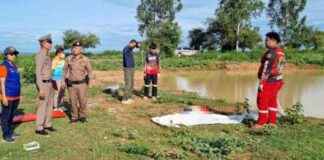Preparing for the Influx of Diverse Water into the Northeast
As the Northeast region of Thailand braces itself for an influx of diverse water, Prime Minister Anutin Charnvirakul has emphasized the importance of preparing for potential challenges. With reports of flooding in Chiang Rai, the government is taking proactive measures to ensure the safety and well-being of its citizens. Anutin reassured the public that the government is fully committed to managing the situation effectively and providing support where needed.
In response to the rising water levels in Nong Khai and Nakhon Phanom, Anutin stressed the urgency of accelerating drainage into the Mekong River. This swift action is crucial to prevent further flooding and minimize the impact on local communities. The government is working closely with provincial authorities in Chiang Mai and Chiang Rai to devise strategies for efficient water management and disaster response.
Accelerating Drainage into the Mekong
The Mekong River plays a vital role in the region’s ecosystem, serving as a lifeline for countless communities. As water levels continue to rise, the need to accelerate drainage into the Mekong becomes paramount. Anutin highlighted the importance of collaboration between local authorities and government agencies to ensure a coordinated and effective response.
The recent incidents of landslides in Mae Ai have underscored the urgency of redirecting water flow towards the Mekong River. By prioritizing drainage efforts in high-risk areas, authorities aim to mitigate the risk of further disasters and safeguard the well-being of residents. Anutin emphasized the government’s commitment to proactive measures that prioritize public safety and environmental sustainability.
Rushing to Rehabilitate Chiang Rai
In the wake of the flooding in Chiang Rai, efforts are underway to rehabilitate the affected areas and support those impacted by the disaster. Anutin expressed his concern for the residents of Chiang Rai and emphasized the government’s commitment to providing assistance and resources for recovery. The rehabilitation process will involve various initiatives aimed at restoring normalcy and rebuilding the community.
Anutin also addressed the issue of compensating hotel owners who have opened their doors to accommodate displaced individuals free of charge. The government recognizes the generosity of these establishments and is committed to reimbursing them for their contributions. Minister of Tourism and Sports, Phiphat Ratchakitprakarn, will be visiting Chiang Rai to assess the situation and ensure that adequate support is provided to those in need.
As the situation in Mae Sai gradually improves and transitions into a phase of recovery, businesses are beginning to reopen and residents are regaining a sense of normalcy. However, many shops and establishments have suffered significant losses due to the flooding. Anutin acknowledged the challenges faced by these businesses and pledged to provide the necessary financial support to help them recover and rebuild.
In conclusion, the government’s swift response to the flooding in Chiang Rai and the Northeast region demonstrates its commitment to ensuring the safety and well-being of its citizens. By accelerating drainage into the Mekong, supporting rehabilitation efforts, and providing assistance to affected businesses, the government is taking proactive steps to address the challenges posed by the natural disaster. The collaboration between local authorities, government agencies, and the private sector is essential in ensuring a coordinated and effective response to future emergencies.




















